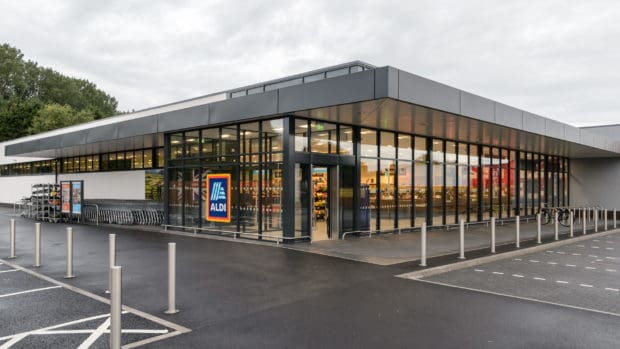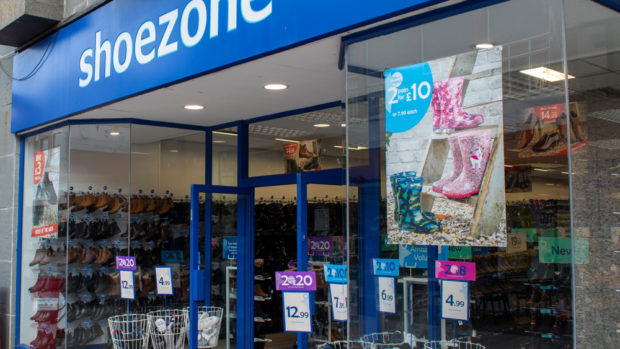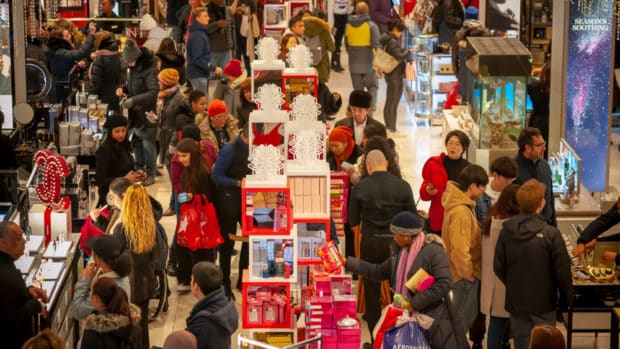A new report into shopping behaviour around the world has found that UK retailers are most likely to thrive in the coming years if they can combine the convenience of digital shopping with the experience of being physically in-store.
The global survey of 20,000 shoppers, conducted by consumer trends agency Foresight Factory and commissioned by Snap Inc., showed UK consumers were more inclined to shop online in the coming year than those in the United States, France and Japan, among other countries.
More than 4 in 10 (44 per cent) Brits plan to do the majority of their clothes shopping online over the next 12 months – well above the global average of 38 per cent and higher than almost any other country surveyed. The study also found that only 34 per cent of Brits said buying in-store was their favourite method of shopping, compared to 43 per cent globally.
Yet despite a challenging year for the UK high street because of the pandemic, Brits do retain a desire to shop in-store, with half (49 per cent) of UK consumers saying they missed the social aspect of shopping, and 51 per cent finding the inability to try-on products frustrating.
‘Connected shopping’ – where consumers can combine the convenience of a digital experience with the benefits of a physical store – is expected to be critical to drawing consumers back to the high street. A third (30 per cent) of UK shoppers said they would go out of their way to visit a store if it had interactive services that allowed them to try-on and test items virtually, while a fifth (19 per cent) said they were more likely to shop in stores that offered online features such as instant access to stock information or a home delivery service.
The report into the future of shopping habits also found:
- Growth in eCommerce during Covid-19 will be sustained with 22 per cent of UK shoppers expecting to do more online shopping in the next 12 months compared to last year whilst 59 per cent are planning on doing the same amount
- Shopping with augmented reality (AR) will continue to surge with a predicted 80 per cent increase in the proportion of Gen Z shoppers in the UK using AR before buying a product over the next five years. More than half (54 per cent) of UK consumers who have already used AR when shopping say it encouraged them to make a purchase.
- New technology could reduce the number of online items that are returned annually by up to 42 per cent, with the study estimating that the cost of online returns now amounts to around $7.5 billion each year – and £377m in the UK alone.
- Demands for a more sustainable, circular retail economy are growing, with 40 per cent of UK consumers saying they worry about the environmental impact of shopping online. Nearly half (46 per cent) of UK shoppers surveyed bought something through a resale platform with more than 1 in 5 citing environmental reasons as a motivation for the purchase.
Meabh Quoirin, CEO and Co-Owner of Foresight Factory says: “Consumers are demonstrating a clear desire for the human interaction that comes with in-person shopping, alongside the convenience and engagement of online shopping. ‘Connected shopping’ should be at the heart of brands’ strategies to drive shoppers back into their stores, as our study shows that when brands embrace technologies, both in-store and online, they could further strengthen and deepen their connections with consumers.”
Ed Couchman, General Manager, UK, Nordics and DACH , at Snap Inc. says: “For a long time, people thought the internet and technology was a threat to physical retail but this report clearly shows that those who harness the benefits of tech are best placed to thrive post pandemic. Shoppers want to read reviews, compare prices and try on items using AR – but they also enjoy the experience of going into a shop, speaking to staff, and looking at items. They want the best of both worlds.”
Foresight Factory’s comprehensive study was conducted across 12 markets: Australia, Canada, France, Germany, Italy, Japan, The Netherlands, Norway, Saudi Arabia, UAE, UK, US.








Share